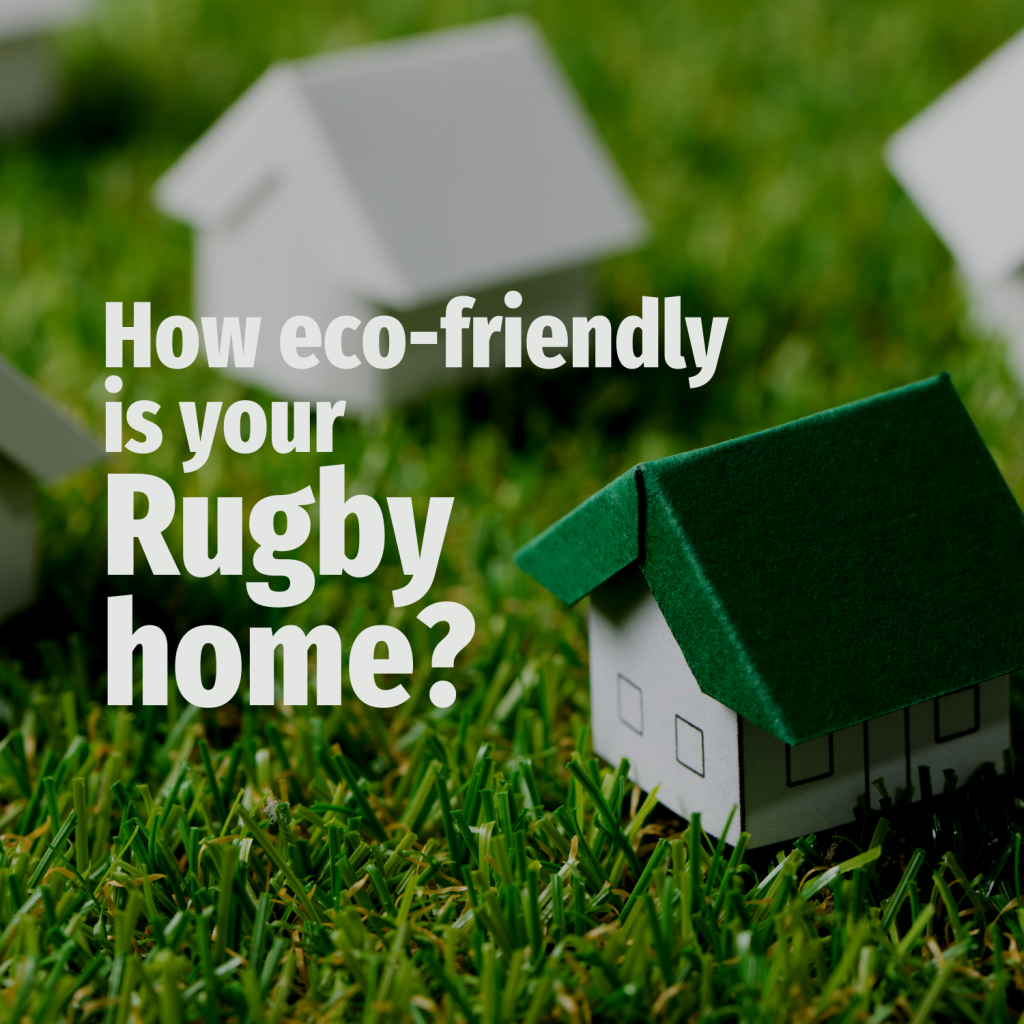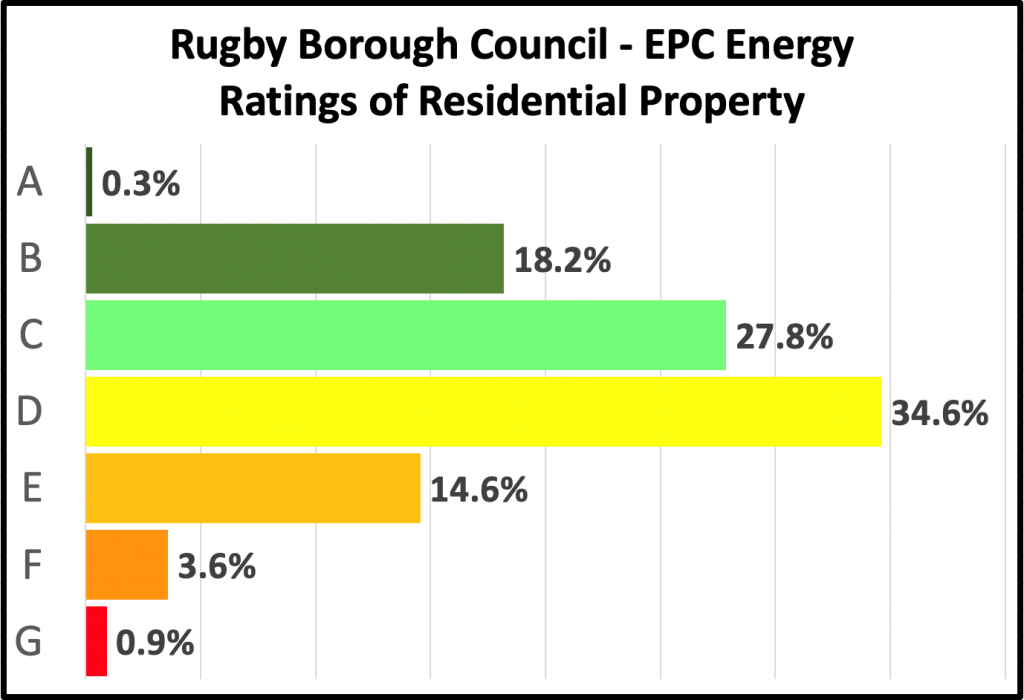How Eco-friendly are Rugby Homes?

And how new Gov’t rules will mean draughty low-eco Rugby homes will drop in value..
‘It’s Not Easy Being Green’, was the song that Kermit sang on Sesame Street.
Yet now being green is a normal way of life for most of us. Walking or cycling places instead of taking the car, recycling and even shunning meat are some of the things most Rugby households are trying to do their ‘bit’ for going green.
Our conduct may have improved but when it comes to our Rugby homes, there is still a long way to go. It is estimated around a fifth of carbon emissions come from home energy usage (nearly three quarters from heating and lighting). The country is releasing 37% less carbon into the atmosphere than in 1990, yet we have legally binding targets to hit 100% by 2050 — and the Committee on Climate Change has stated the UK will need to eradicate greenhouse gas emissions from homes to meet that target.
Landlords were hit first because since April 2018, the Minimum Energy Efficiency Standards (MEES) regulations with regards to eco-friendliness of the rental properties have required all rental properties to have a minimum Energy Performance Certificate (EPC) rating of ‘E’ or above otherwise it is illegal to let out a property, bar a couple of exceptions. This has meant Rugby landlords have had to spend many thousands of pounds to improve their rental property’s EPC rating (an EPC rating of ‘A’ being the best eco rating through to a ‘G’ for the worst – just like washing machine or fridge ratings).
But new Government plans could hit Rugby homeowners in the pocket as well.
The Government is planning to force banks and building societies to penalise people wanting a mortgage of draughty low-eco homes with an energy performance certificate (EPC) rating of D or lower. For those properties not hitting the correct level of EPC rating, it is suggested some form of levy will be placed on the mortgage provider, who in turn will pass that on to the home buyers in the form of higher mortgage payments. Some are describing this charge as an ‘eco-mortgage levy’.
Just over half (53.7%) of homes in Rugby would be hit by this ‘eco-mortgage levy’, thus potentially reducing the value of those homes.
Interesting when you compare this with the national average of 60.6%.
In real numbers, 20,142 homeowners and landlords in our local authority area would either struggle to get a mortgage from a bank or building society or it would cost them more because they were a ‘D’ rating on their EPC or below.

Looking at the stats broken down for Rugby:
- 110 properties are classified as A on the EPC register
- 6,826 properties are classified as B on the EPC register
- 10,452 properties are classified as C on the EPC register
- 12,993 properties are classified as D on the EPC register
- 5,461 properties are classified as E on the EPC register
- 1,346 properties are classified as F on the EPC register
- 342 properties are classified as G on the EPC register
So, what can Rugby homeowners and landlords do to improve their EPC rating?
Well surprisingly, it need not cost a lot to improve the EPC rating of your Rugby home. One of the most inexpensive ways to help improve your Rugby home’s energy efficiency is low energy light bulbs with an estimated cost of just under £40 per UK property. Other efficiencies can be gained by insulating your hot water cylinder, draught proofing any single glazed windows, increasing your loft insulation and upgrading your central heating controls, all of which can be done for a total of around £750 to £850 per property.
If you want to know the EPC rating of your home, either google the phrase ‘EPC register’ or send me a message and I will find out for you.
Finally, as Kermit famously also said, “Life’s like a movie. Write your own ending”. If you are a Rugby homeowner or Rugby landlord, why not look at your property’s EPC rating and look at the recommendations. You are going to have to spend the money sometime, so why not do it now and enjoy lower energy bills and when you come to sell, you won’t be penalised … a win-win situation for you and the planet?<
